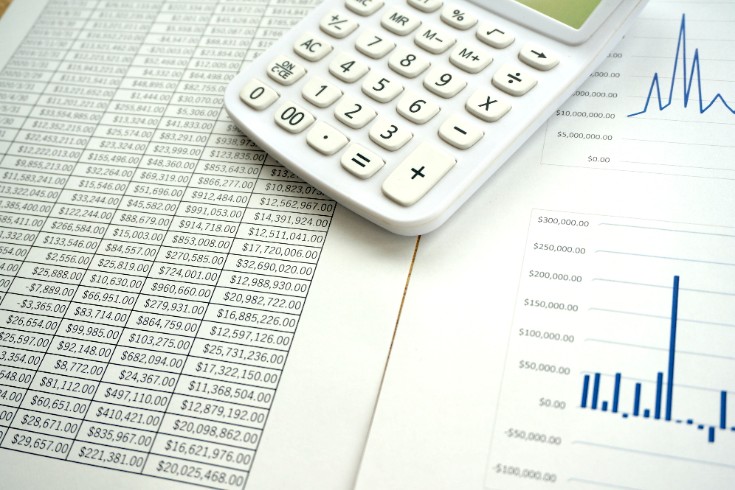Can You Be Arrested for Violating the Japanese Pharmaceuticals and Medical Devices Act? An Explanation of the Penalties

The Japanese Pharmaceutical and Medical Devices Act (PMD Act) sets out various regulations related to pharmaceuticals and medical devices. Violations of these regulations can lead to arrests, fines, and penalties, potentially causing significant damage to businesses.
For instance, there have been cases where not only the advertisers but also the staff of advertising agencies and production companies were arrested due to violations of the Pharmaceutical Affairs Law in the advertising of non-pharmaceutical products. Even if the product is a supplement or health food that is not a pharmaceutical, it may be subject to the regulations of the Pharmaceutical Affairs Law depending on its advertising expression.
In this article, we will explain what actions violate the Pharmaceutical Affairs Law, what penalties are stipulated, and how to avoid violations of the Pharmaceutical Affairs Law.
What is the Pharmaceuticals and Medical Devices Act?
The Pharmaceuticals and Medical Devices Act, officially known as the “Act on Securing Quality, Efficacy and Safety of Products Including Pharmaceuticals and Medical Devices,” is a law enacted to ensure the quality, efficacy, and safety of pharmaceuticals and medical devices, and to improve public health. Prior to its amendment in 2013 (Heisei 25), it was known as the “Pharmaceutical Affairs Law,” a term that may be more familiar to some.
While pharmaceuticals and medical devices offer significant benefits such as contributing to human health, they can also have a profound impact on the human body. If used while there are issues with their efficacy or safety, they could harm health and potentially cause serious harm to life.
Therefore, the Pharmaceuticals and Medical Devices Act aims to protect the health and safety of the public by imposing strict regulations, such as prohibiting false and exaggerated advertising and the unauthorized manufacturing and selling of pharmaceuticals and other related products.
When Can You Be Arrested?
The phrase “You will be arrested if you violate the Japanese Pharmaceutical and Medical Device Act” is not accurate. To begin with, “arrest” is not a penalty stipulated in the Pharmaceutical and Medical Device Act, but a physical restraint measure stipulated in the Japanese Code of Criminal Procedure. It is something that can be imposed if a crime is committed, not limited to violations of the Pharmaceutical and Medical Device Act.
There are three types of “arrest”: arrest for a crime in progress, ordinary arrest, and emergency arrest. In the case of being arrested for violating the Pharmaceutical and Medical Device Act, it is considered to be either an ordinary arrest or an emergency arrest.
For an ordinary arrest (Article 199, Paragraph 1 of the Japanese Code of Criminal Procedure) or an emergency arrest (Article 210, Paragraph 1 of the Japanese Code of Criminal Procedure), a warrant is required. In order for a warrant to be issued, the reason for the arrest and the necessity of the arrest must be recognized (Article 199, Paragraph 2 of the Japanese Code of Criminal Procedure, Rule 143-3 of the Japanese Criminal Procedure Rules).
Therefore, the accurate expression would be “If you violate the Pharmaceutical and Medical Device Act and there is a reason and necessity for arrest, you will be arrested.”
Reason for Arrest
The reason for arrest refers to “a reasonable cause to suspect that a crime has been committed” (Article 199, Paragraph 2 of the Japanese Code of Criminal Procedure). It is not enough to merely have the possibility of committing a specific crime, but if there is a reasonable suspicion, even if it does not lead to conviction, the reason for arrest is recognized.
If you commit an act that violates the Pharmaceutical and Medical Device Act, the reason for arrest is naturally recognized as it is clear that a crime has been committed.
Necessity of Arrest
When the reason for arrest is recognized, it may seem reasonable to immediately approve the arrest as there is a reasonable cause to suspect that the person has committed a crime. However, arrest is a measure that highly risks infringing on human rights by restraining the person’s body, so the necessity of arrest is also required.
Rule 143-3 of the Japanese Criminal Procedure Rules exemplifies cases where there is no necessity for arrest when, in light of the suspect’s age and circumstances, the severity and manner of the crime, and other circumstances, there is no risk of the suspect fleeing and no risk of “concealing evidence”.
“Evidence” simply means evidence related to the crime. For example, in the case of a violation of the advertising regulations of the Pharmaceutical and Medical Device Act, the data of the advertisements used, the homepage where they were posted, the actual pharmaceuticals manufactured and sold without permission, and the receipts issued at the time of sale, etc., are considered evidence.
The risk of escape and the risk of concealing evidence are examples, and there are other factors that may be judged as not requiring arrest, but it is important to note that the judge who issues the arrest warrant makes these judgments. No matter how much you have no intention of fleeing or concealing evidence, if it is judged that there is a necessity for arrest considering the seriousness of the crime and the remaining evidence, an arrest warrant will be issued and you will be arrested.
Examples of Violations and Penalties under the Japanese Pharmaceuticals and Medical Devices Act
So, what actions constitute a violation of the Japanese Pharmaceuticals and Medical Devices Act? Here, we introduce examples of such violations and the penalties for them.
Bribery in the Japanese Pharmaceuticals and Medical Devices Act
For bribery involving officers and employees of registered certification bodies engaged in conformity assessment activities, severe penalties of up to seven years imprisonment are stipulated (Japanese Pharmaceuticals and Medical Devices Act, Article 83-6 and below).
For those who play a crucial role in the certification of manufacturing and sales of pharmaceuticals and other products, strict punishment is provided due to the risk of dangerous pharmaceuticals and other products being distributed through bribery, which could cause significant harm.
Unauthorized Manufacturing and Sales
To engage in the manufacturing and sales business or manufacturing business of pharmaceuticals and other products, you need to obtain permission from the Minister of Health, Labour and Welfare (Japanese Pharmaceuticals and Medical Devices Act, Articles 12 and 13). Violating this, by conducting the manufacturing and sales business of pharmaceuticals and other products without the Minister’s permission, can result in imprisonment for up to three years or a fine of up to 3 million yen, or both (Japanese Pharmaceuticals and Medical Devices Act, Article 84-2). If you engage in manufacturing, you can be sentenced to imprisonment for up to one year or a fine of up to 1 million yen, or both (Japanese Pharmaceuticals and Medical Devices Act, Article 86-1-2).
Violation of Designated Drug Regulations
Designated drugs are substances designated by the Minister of Health, Labour and Welfare as likely to have psychotropic properties and pose a risk to public health and hygiene if used on the human body (Japanese Pharmaceuticals and Medical Devices Act, Article 2-15). So-called dangerous drugs or loophole drugs, while useful for their intended purposes, cannot be banned outright. Therefore, by designating them as designated drugs, their manufacture, import, sale, and possession for purposes other than their intended uses are prohibited (Japanese Pharmaceuticals and Medical Devices Act, Article 76-4 and below).
The penalties for violating these prohibitions are imprisonment for up to five years or a fine of up to 5 million yen, or both, if the manufacture, etc., is conducted as a business (Japanese Pharmaceuticals and Medical Devices Act, Article 83-9). If the act is not conducted as a business, the penalties are imprisonment for up to three years or a fine of up to 3 million yen, or both (Japanese Pharmaceuticals and Medical Devices Act, Article 84-28).
False or Exaggerated Representations in the Japanese Pharmaceuticals and Medical Devices Act
Given that pharmaceuticals and other products involve significant personal health interests, false or exaggerated advertising content can potentially cause significant harm to public health and hygiene. Therefore, the Japanese Pharmaceuticals and Medical Devices Act prohibits advertising with false or exaggerated representations (Japanese Pharmaceuticals and Medical Devices Act, Article 66-1).
If this is violated, you can be sentenced to imprisonment for up to two years or a fine of up to 2 million yen, or both (Japanese Pharmaceuticals and Medical Devices Act, Article 85-4).
Furthermore, with the amendment to the Japanese Pharmaceuticals and Medical Devices Act in 2019, a surcharge system was introduced, and in addition to the above penalties, you may be ordered to pay a surcharge (Japanese Pharmaceuticals and Medical Devices Act, Article 75-5-2).
Examples of Violations of the Japanese Pharmaceutical and Medical Device Act
Case of Unauthorized Sale of COVID-19 Antigen Test Kits
Since around 2020 (Reiwa 2), there has been a surge in cases related to the novel coronavirus. In September 2021 (Reiwa 3), individuals were arrested for advertising and selling COVID-19 antigen test kits that had not been approved by the Ministry of Health, Labour and Welfare.
In this case, the issue was not only the unauthorized sale of antigen test kits, which are considered medical products, but also the violation of the prohibition on advertising medical products that have not been approved by the Minister of Health, Labour and Welfare (Article 68 of the Japanese Pharmaceutical and Medical Device Act).
The two individuals arrested were issued a summary order for a fine in February 2022.
Case of Supplement Advertisement Violating the Prohibition on Advertising Unapproved Medical Products
In July 2020 (Reiwa 2), a sales company and its employees, an advertising agency and its employees, and an advertising production company and its employees were arrested on suspicion of advertising and selling supplements that were not approved as medical products, with claims such as “effective for preventing liver disease”.
This case, like the first one, involved violations of the prohibition on advertising unapproved medical products and the prohibition on selling unapproved medical products (Article 55 of the Japanese Pharmaceutical and Medical Device Act).
Notably, not only the advertiser but also the advertising agency and the advertising production company were arrested, indicating a strict application of Article 68 of the Japanese Pharmaceutical and Medical Device Act, which states that “no person shall… advertise”.
In this case, a summary order for a fine was issued in March 2021 (Reiwa 3) for violating the prohibition on advertising unapproved medical products, while the violation of the prohibition on selling unapproved medical products resulted in a non-prosecution decision.
Preventing Arrest for Violations of the Japanese Pharmaceutical and Medical Device Act
If you violate the Japanese Pharmaceutical and Medical Device Act, you cannot deny the possibility of being arrested. To prevent arrest, it is essential not to violate the Act in the first place.
So, how can you avoid violating the Act?
Verify the Contents of Permissions, Approvals, and Guidelines
Firstly, if your company is engaged in the manufacturing or sales business of pharmaceuticals and other related products, you need to confirm whether you have obtained the appropriate permissions. Then, check whether the products themselves have received the proper approvals.
Also, if you are advertising pharmaceuticals and other related products, you must ensure that you are not violating advertising regulations. The Ministry of Health, Labour and Welfare has compiled guidelines on the content and standards of advertising regulations, so you should familiarize yourself with them.
Create a Manual
After understanding the content of the guidelines, creating an internal manual that does not conflict with them can help disseminate what actions violate the Act and how to avoid such violations throughout the company.
As we have introduced in the examples of violations of the Act, not only advertisers but also advertising agencies and production companies may be at risk of arrest. Therefore, by making the manual known to your business partners and checking whether they have taken measures, you can further reduce the risk of violating the Act.
Consult a Lawyer
However, even if you take these measures, it can be challenging to determine on your own whether individual actions violate the Act. Moreover, the Act often undergoes significant amendments, and it is necessary to accurately understand the content of the revised law.
In such cases, please consult a lawyer with extensive experience and ask for their judgment on whether an action violates the Act.
Summary: Consult Lawyers for Cases related with the Japanese Pharmaceutical and Medical Devices Act (PMD Act)
Aside from what we’ve discussed in this article, the Japanese Pharmaceutical Affairs Law (薬機法) has numerous regulations. To determine whether an action violates this law, a precise understanding of it is necessary. It can be challenging for individuals or companies to accurately grasp the content and operation of the law. Therefore, if you encounter any troubles related to the Pharmaceutical Affairs Law, or to prevent such troubles from occurring, please consult with an experienced lawyer first.
Legal checks and suggestions for rephrasing expressions in relation to the Pharmaceutical Affairs Law and other laws are highly specialized areas. At Monolith Law Firm, we have formed a Pharmaceutical Affairs Law legal team that can handle article checks for a variety of products, from supplements to pharmaceuticals.
Introduction to Our Firm’s Measures
Monolith Law Office is a legal office with extensive experience in both IT, particularly the internet, and law. We provide services such as legal checks of articles and landing pages, creation of guidelines, and sampling checks for various entities including media operators, review site operators, advertising agencies, direct-to-consumer (D2C) businesses such as supplement manufacturers, cosmetic manufacturers, clinics, and Application Service Provider (ASP) businesses.
Category: General Corporate





















